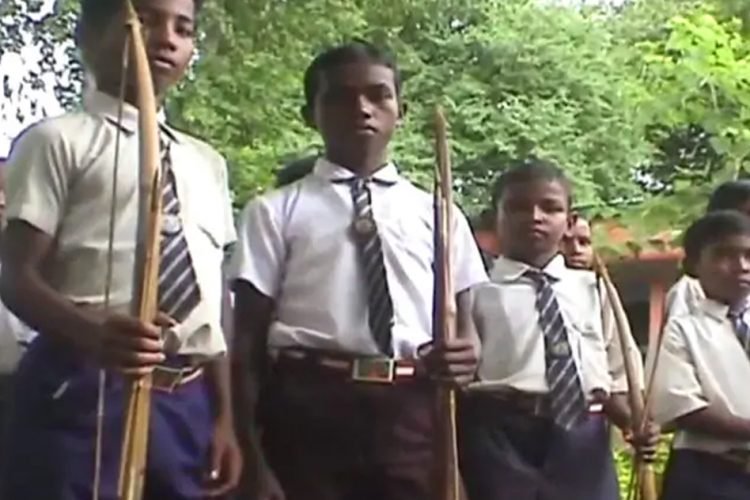Schoolchildren of Pochani, a village about 80 km from Jameshdpur in Jharkhand, are reportedly carrying bows and arrows to school. They fear they would be harmed by strangers they spot in the jungles and are carrying these in self defence, according to the reports. It is suspected that these strangers the children fear are Maoists. The situation is an indication of the persistent failure of the state in ensuring safety for people living in Maoist areas. It also points to the growing distance between Left-wing extremism and people. Bows and arrows may be integral to tribal life and customs. But for children to carry these lethal weapons in self defence is a tragedy. A group of children who want to be at school and are being denied the peaceful pursuit of an education is sad for society to witness. It may be impractical to expect the government to provide security to every individual child in a jungle given the resources they have at their disposal in terms of men and material. But the fact that there is no school in the said village owing to fear of the LWEs is telling. The children need to trek their way to a school located across a patch of jungle following traditional paths.
It is a known fact that administration is almost non-existent in Maoist prone areas. Fear of extremists prompts government officials to steer clear. Administrators posted in such areas prefer to stay away from official duties. Even police personnel posted in those areas know better than to take a stand and engage with Maoists. With hardly any administrative backup or infrastructure development, locals have had to interface with extremists. In today’s scenario, both administration and extremists expect compliance and cooperation from the villagers, putting them in a dangerous spot.
Children represent hope for tribal communities, to be able to survive in a world where their rights to the forest are severely curtailed and jungles are quickly making way to feed the greed of urban spreads. Voices and movements against wanton destruction of forests are being smothered and sacrificed at the altar of development. Protests such as the one at Balarampur in Dhenkanal against the establishment of a beer factory by clearing a large number of trees need to be seen in the light of growing awareness among people about distributive justice. Governments need to realise that in the blind pursuit of pleasing the monied class by providing them with wider avenues for exploitation of resources, they are trampling the simple needs of people who have lived in harmony with nature. At present, if tribals are opting for the education that has been framed keeping the interests chiefly of the urban populace in perspective, it is not just because they are getting an opportunity to find alternative livelihoods but also because they need to think about two square meals a day.
Tribals are forced to adopt homogeneity, sacrificing their identity and the space they have created for themselves. Therefore, if the state wants them out of jungles and insists to ‘mainstream’ them, it must also extend an environment free of fear. Else, tribals should be allowed to live their life free in the jungles without interference or pressures to take sides and follow laws they consider dear for their protection. The children of Pochani deserve better.
